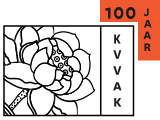“On the Track of Robert van Gulik”
About the Film On the Track of Robert van Gulik
Robert van Gulik (1910-1967) is one of the world’s most popular Dutch writers, but relatively unrecognized in his own country. A diplomat, Chinese specialist and scholar, he became famous with his detective series about Judge Dee, which in many ways, are projections of his own life: a permanent duality between his real life and the hero in his books.
Written and directed by filmmaker Rob Rombout
88 minutes
Spoken in English, Dutch, French, Chinese and Japanese
Please find here the trailer of this film and the PDF press kit of this film!
Film synopsis:
On The Track Of Robert van Gulik is a documentary quest about one of the most read Dutch writers in the world, Robert van Gulik (1910-1967). This diplomat, author and scholar was a highly versatile man and a connoisseur of Japanese and Chinese languages and cultures. He owes his fame to his detective fiction starring Judge Dee.
The filmmaker Rob Rombout follows in his footsteps to discover the author’s legacy in his diaries, the people he inspired and the witnesses to his life. During Rombout’s years-long travels through the Netherlands, Indonesia, Japan, the U.S. and China he located many of van Gulik’s contemporaries and devotees of both Judge Dee and van Gulik: people whose lives changed after entering his universe. These are unique people who emulate the writer, the scholar and the diplomat.
Robert van Gulik’s life reads like a novel. His books are in many respects projections of his own life. In one of his rare interviews, van Gulik accidentally disclosed: ‘ … Judge Dee, that’s me…’. It can be difficult to draw the line between fact and fiction with a character like Robert van Gulik. In the documentary, reality and fantasy, past and present will flow into each other, at times imperceptibly.
The narrative form is a quest where the filmmaker takes us on a journey in the author’s tracks. At times by plane, by ship or literally on tracks, by train just as the writer himself often travelled. The film is structured (often broken up) with fragments of diaries and stylized interviews. The filmmaker’s own voice blends into the spoken diary texts.
The challenge is to bring to life a deceased writer using modern day images and without recourse to archive images. The author’s private archive material will be used in moments: handwritten letters, manuscripts, diary extracts, photographs and films.
So, this is not a biopic or reconstruction but a journey in search of what is left behind. The film presents a liberal interpretation of the writer’s life and at times provides a pretext for the exploration of other subjects. One door opens another. Through the portrait of van Gulik, the filmmaker addresses themes such as the relationship between fact and fiction, the East and the West, diplomacy and writing and the romantic and the erotic.
The duality and the mystery of the man at the heart of this film are reflected in the cinematic form it takes: a continual flirtation with the boundaries of the documentary genre.

Rob Rombout (Amsterdam, 1953) is an independent film director and renowned lecturer, teacher and jury member. He was a professor at the LUCA School of Arts in Brussels and co-founder and executive of the DocNomads Program (international master’s degree in documentary filmmaking). He has been a professor at INSAS (Brussels) and a lecturer in France at the University of Paris 8 and the University Marc Bloch in Strasbourg. For many years, he has been leading workshops all over the world (Brazil, Vietnam, China, Canada, United States, Lebanon). He was the first professor sent by INSAS to teach at the SKDA (Hanoi) and to setup of a common program between the two schools. He directed documentaries for over thirty years. All his films were shown on international television channels and have been awarded in several festivals. The last 5 years, he moved to other forms of exposure of his work in solo exhibitions and retrospectives (Belgium, Netherlands, Portugal, France, Australia, Azerbaijan). Rob Rombout’s documentaries are based on practices commonly associated with fiction. However, they manage to reconcile these processes with those related to documentary filmmaking.
